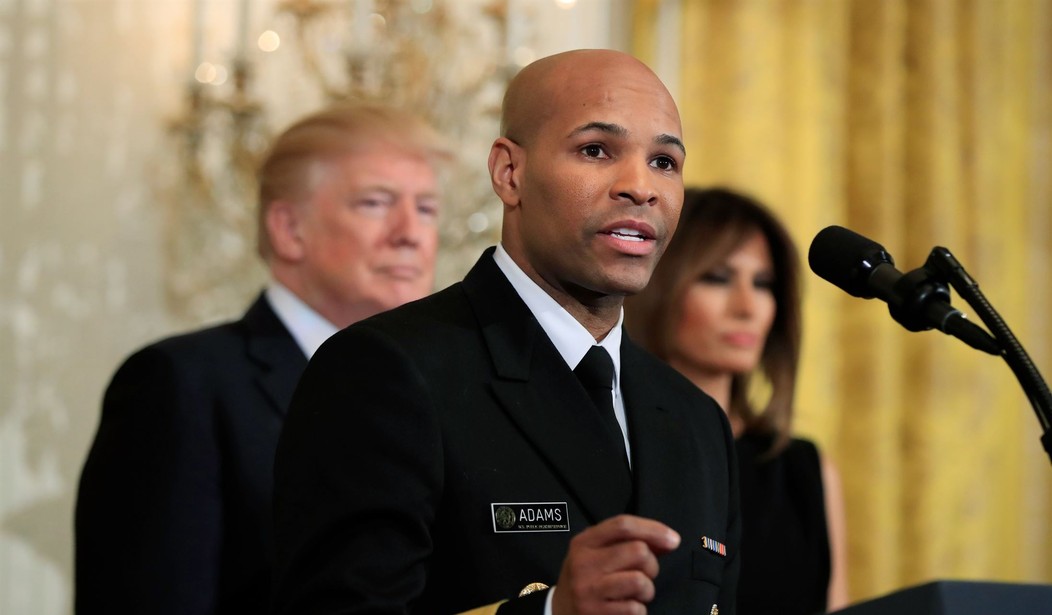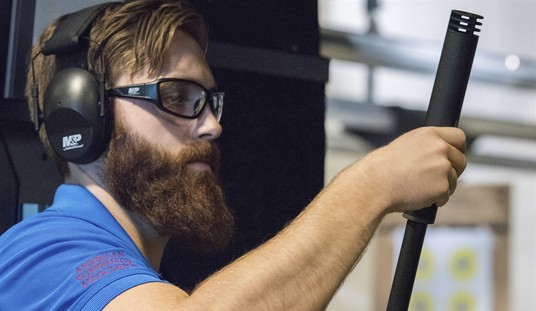The Surgeon General of the United States is probably the most important physician in the country. From that office, whoever fills that role is responsible for determining health policy for pretty much the entire nation, even if they don’t actually have any regulatory authority. As head of the Public Health Service Commissioned Officer Corps, the surgeon general’s role is to help prevent disease, among other things.
A surgeon general’s warning on a product is something people tend to take notice of, even if they eventually disregard it.
Yet there’s one thing the surgeon general has been silent on, and that’s firearms. It seems some people aren’t particularly happy about that.
Last week the head of the Association of American Medical Colleges called gun violence a “public health crisis” in America. To address it, Dr. David J. Skorton wrote, “[t]hose of us in the health care field have a central role to play.” His voice adds to the increasing chorus of leading medical organizations, including the American Medical Association, American Public Health Association, American Academy of Family Physicians and the American College of Surgeons, demanding action on the issue.
Yet there is one high-profile figure conspicuously absent from this growing symphony of doctors calling for change: The Surgeon General of the United States. On matters of national public health, we should be able to rely on America’s highest medical authority for guidance. But the individual who occupies that office today, Dr. Jerome Adams, has done nothing to lead our country forward on this issue which claimed an estimated 40,000 lives last year alone.
Gun violence is nowhere to be found in any of Dr. Adams’ list of top priorities. He’s offered no proactive plan to confront it, and he was notably silent in the aftermath of the Dayton, Ohio and El Paso, Texas mass shootings that claimed the lives of 31 people over a single weekend last month.
Probably because it’s a complex issue that the media is making every effort to dumb down not to make it more accessible for the masses, but to try and pressure people into preconceived ideas of what’s to be done.
Dr. Adams, however, seems to understand it’s complex.
When asked directly if gun violence is a public health threat in America, he refused to give a yes-or-no answer. He sidestepped it, saying that it “depends by definition on the community that you’re talking about.” He argued hunters who use firearms responsibly don’t view it as a public health concern in their community, while areas where there is a high “presence of guns,” like Baltimore, Md., the threat is evident.
However, what Adams didn’t touch on is that there are reasons why communities like Baltimore are having far more crime taking place, even though guns per capita are probably higher in the more rural communities. America’s inner cities are rife with violence even if you eliminate gun crime from the mix. There’s just something about putting so many people together that can become downright toxic.
Adams didn’t get into anything like that, though.
Instead, he’s apparently recognizing that there’s nothing his office could really do anyway, not when it comes to the topic of violent gun-related crime. That’s a legislative matter and one that his office is woefully ill-equipped to deal with.
But it’s the 21st century and no one is allowed to reserve their opinions and keep them to themselves anymore. They must have an opinion on anything and everything.
Especially someone like the surgeon general.







Join the conversation as a VIP Member